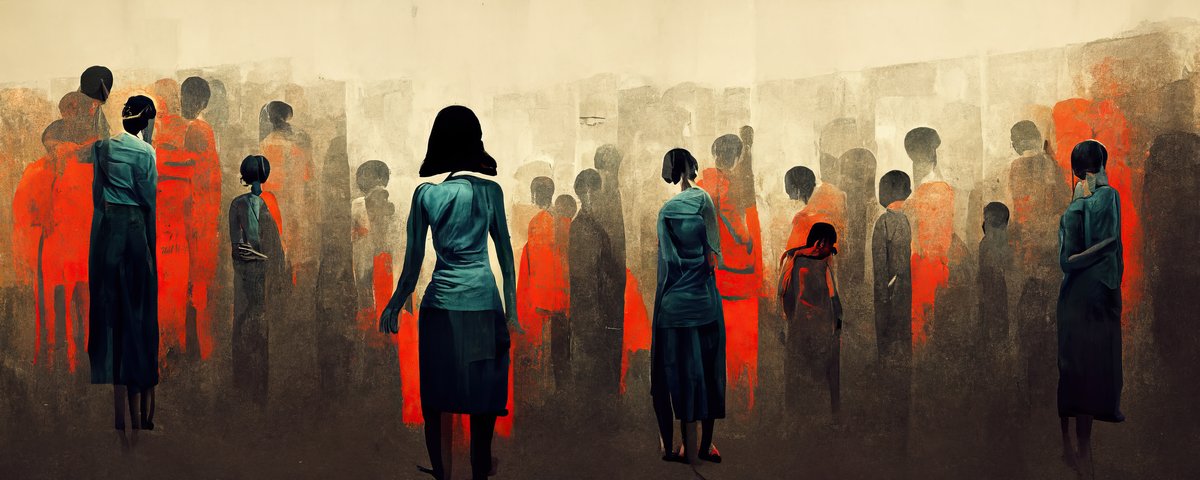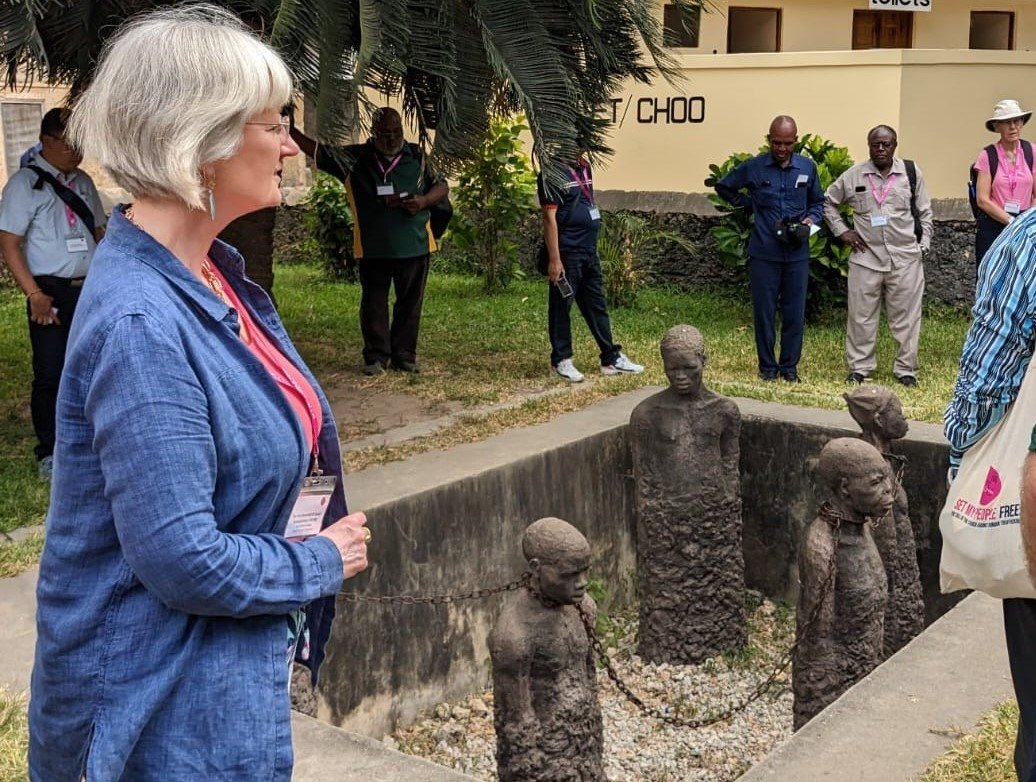'It's time to break the shackles of modern slavery'

Human trafficking and modern slavery were the focus of an international consultation earlier this month. Held by the mission agency, USPG (United Society Partners in the Gospel) in Tanzania, leaders and members of Anglican churches across the world attended.
The stories told were heart-breaking, says the Dean of St Davids, Sarah Rowland Jones, who represented the Church in Wales.
It felt poignantly appropriate that a conference on modern slavery and human trafficking should take place near what was the centre of the notorious East African slave trade 200- years-ago. Zanzibar’s slave markets were only finally shut down in 1873 under British pressure.
The open slave markets might have gone but sadly slavery still exists and indeed is increasing in the form of sex trafficking, forced labour, and exploitation of those vulnerable through poverty or displacement, including refugees and asylum seekers.
The title of the USPG conference in Tanzania was “Set my People Free: The Call of the Church against Human Trafficking”. Over the course of the week, we listened to those who work to address the issues involved with human trafficking and modern slavery, often in extremely complex and dangerous situations.
It was clear that every country represented experienced people being trafficked / enslaved internally, in or out. One African bishop spoke in anguish about how his niece was lured to Iraq two years ago on the false promise of a ‘real’ job and they have been working ever since to get her home. Others spoke about the problems of poverty among congregations in rural areas, forcing families to send their children to friends and acquaintances in urban areas, believing this would give them education but with them ending up in domestic servitude, factory labour or even the sex industry.

The figures presented to us were shocking: slavery is the third most profitable international crime, after the arms trade and drug smuggling, with probably more than 50 million people trafficked /enslaved at any moment. In 2019, the United Nations report on human trafficking showed there was a steady increase in the numbers of victims of trafficking globally and that 30% of these victims are children, indicating that this problem is not going away and cannot be ignored. And, of course, the Covid pandemic has made things worse. What we see here is barely the tip of the iceberg. The stats and the stories were beyond heart-breaking. It’s not something I’ll forget in a hurry.
The Church in Wales has longstanding links with the Haven of Light organisation which raises awareness of modern slavery and human trafficking on our doorsteps in Wales. I was grateful to Alison Ussery, its founder, for briefing me on the situation in Wales which I was able to share.
It was clear from our discussions that collaboration is an essential dimension to tackle the evil of human trafficking. Churches have an important part to play, both in partnering with others locally and regionally, and in working together across the Communion.
At the end of the four-day meeting we agreed a communiqué which commits us to work together across the world to address human trafficking and modern slavery by speaking out, working with governments and other agencies, developing networks to share best practices and producing resources to support the work.
Our report will be taken forward at the meeting of the Anglican Consultative Council in Ghana, this week, where the Church in Wales is represented by Bishop Mary Stallard, Bishop Elect of Llandaff Diocese, and Brianna Rouse, of Cardiff’s Citizen Church.
It was to our shame that we in Wales benefited from the slave trade two centuries ago. We must now break the shackles of modern slavery so that we do not continue to benefit from such appalling suffering.